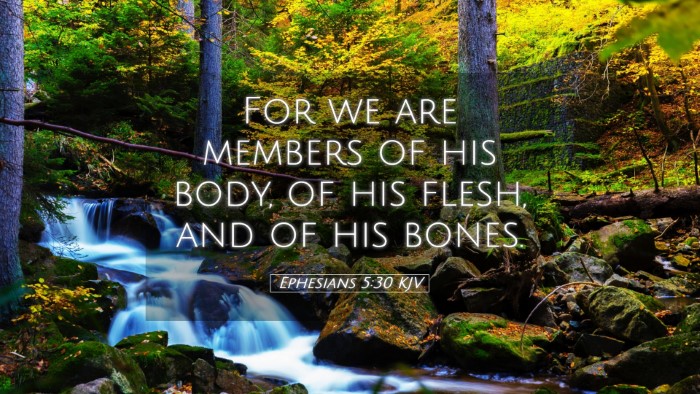Old Testament
Genesis Exodus Leviticus Numbers Deuteronomy Joshua Judges Ruth 1 Samuel 2 Samuel 1 Kings 2 Kings 1 Chronicles 2 Chronicles Ezra Nehemiah Esther Job Psalms Proverbs Ecclesiastes Song of Solomon Isaiah Jeremiah Lamentations Ezekiel Daniel Hosea Joel Amos Obadiah Jonah Micah Nahum Habakkuk Zephaniah Haggai Zechariah MalachiVerse
Ephesians 5:1 Ephesians 5:2 Ephesians 5:3 Ephesians 5:4 Ephesians 5:5 Ephesians 5:6 Ephesians 5:7 Ephesians 5:8 Ephesians 5:9 Ephesians 5:10 Ephesians 5:11 Ephesians 5:12 Ephesians 5:13 Ephesians 5:14 Ephesians 5:15 Ephesians 5:16 Ephesians 5:17 Ephesians 5:18 Ephesians 5:19 Ephesians 5:20 Ephesians 5:21 Ephesians 5:22 Ephesians 5:23 Ephesians 5:24 Ephesians 5:25 Ephesians 5:26 Ephesians 5:27 Ephesians 5:28 Ephesians 5:29 Ephesians 5:30 Ephesians 5:31 Ephesians 5:32 Ephesians 5:33

